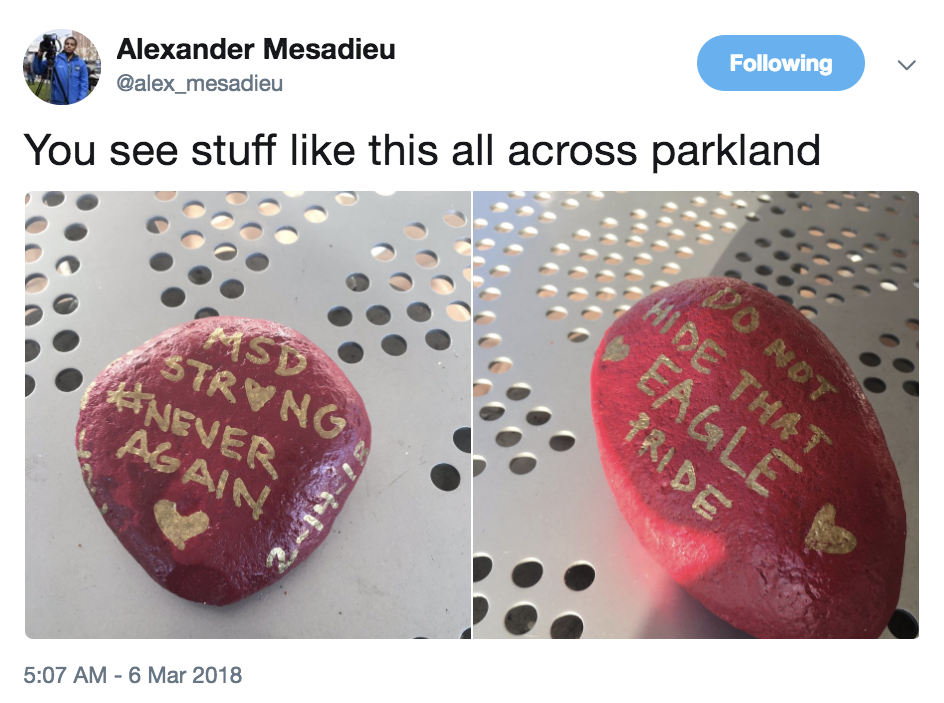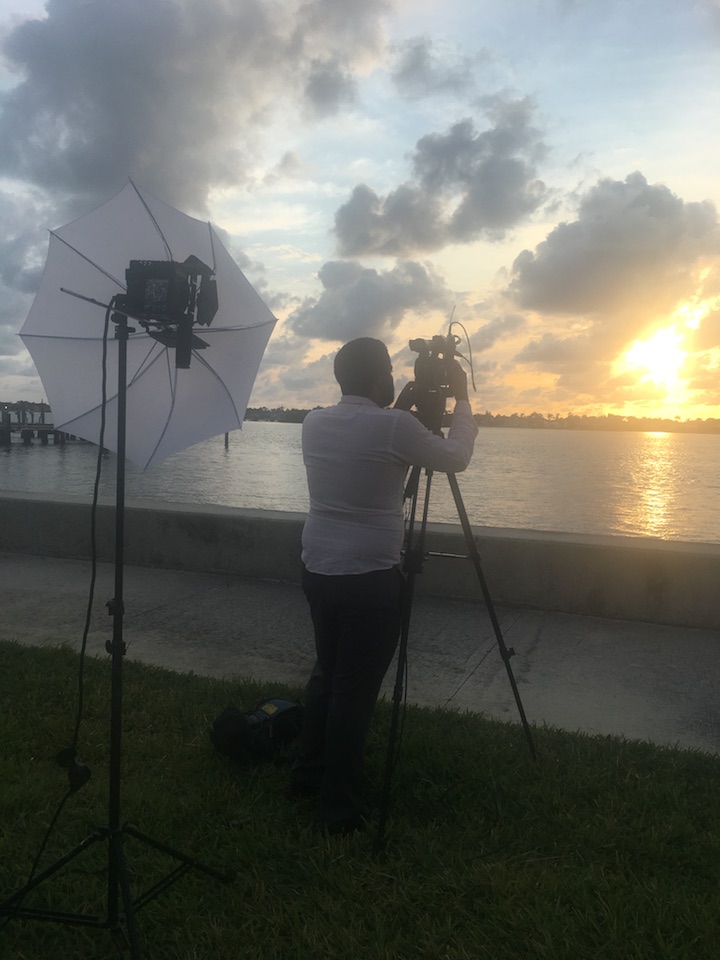Less than two years after graduating from the Communication Program at Southern Oregon University, broadcast journalist Alex Mesadieu made the jump from the 136th-ranked U.S. television market in Medford to market No. 37 in West Palm Beach, Florida. Find out more about Alex’s professional journey in this interview with SOU professor Erik Palmer.
How did you get from Medford to Palm Beach?
Right after graduation, I started as a Master Control Operator at KTVL in Medford, then after about six months I become a photographer/editor, and then I started at CBS12 in West Palm Beach earlier this year.
How has your life changed as you’ve jumped up to a larger market?
It’s 5000 percent different. When I worked in Medford, I did not have access to half of the equipment we have here. For example, in West Palm Beach, we’re using multiple directional lights for almost every live shot, and we have a higher tech truck, with microwave broadcast capability for our live shots. We are always out shooting, writing and editing stories. We work a lot faster, and don’t even go into the station very often.
Is it just the equipment difference, or have you seen other changes that emerge from working in a larger market?
The national scale of the stories we are working on is huge. Sometimes we’d have big stories in Medford, but in West Palm Beach, every week, I’m doing national interest stories. I wasn’t here that long before the Parkland school shooting happened, and we were out there covering that story next to CNN, Fox and Univision. The bridge collapse at Florida International University is another example where we did full coverage along side the national media. Even when we aren’t doing huge stories, President Trump comes to Mar-A-Lago so often that I always see the national media doing live shots in the same locations that we use.
 Which parts of your SOU experience have contributed to your success so far?
Which parts of your SOU experience have contributed to your success so far?
One thing that helped me, and I hope anyone who reads this gets: at SOU, the size is really an advantage. In Ashland, wanting to be a reporter, I was a big fish in a small pond, and I got a lot of internships, with Pulitzer Prize-winning investigative journalist George Dohrmann, with the Daily Dot and the Rogue Valley Messenger.
I also worked at the Digital Media Center, which is the main thing that helped me get into TV. I never would have gotten that Master Control job at KTVL without the work I did at RVTV and the connections I got from Brandon Givens and the other staff at the DMC. If someone had asked me to do Master Control as a career move, I probably would have said NO, it seems kind of boring. But I learned by doing the work that it’s kind of fun, and a good way to get going on a career in television.
I also got a lot of opportunities through the Film Club, the RVTV access community and The Siskiyou. All of these gave me opportunities to practice journalism. I wasn’t the best videographer, but by practicing and working with other people, I got a lot better a lot faster. Students should be sure to use all the opportunities you have at SOU.
What’s your next step?
I love living and working in West Palm Beach, so I plan to stick with this for the foreseeable future. I’m doing what I’m doing, and working just a few feet away from the CBS team, and doing the same thing they are, which is really inspiring. But I’m only 25, and it’s very possible for me to make it into one of the major networks some day, which is cool to think about.
Connect with Alex on Twitter @alex_mesadieu.





